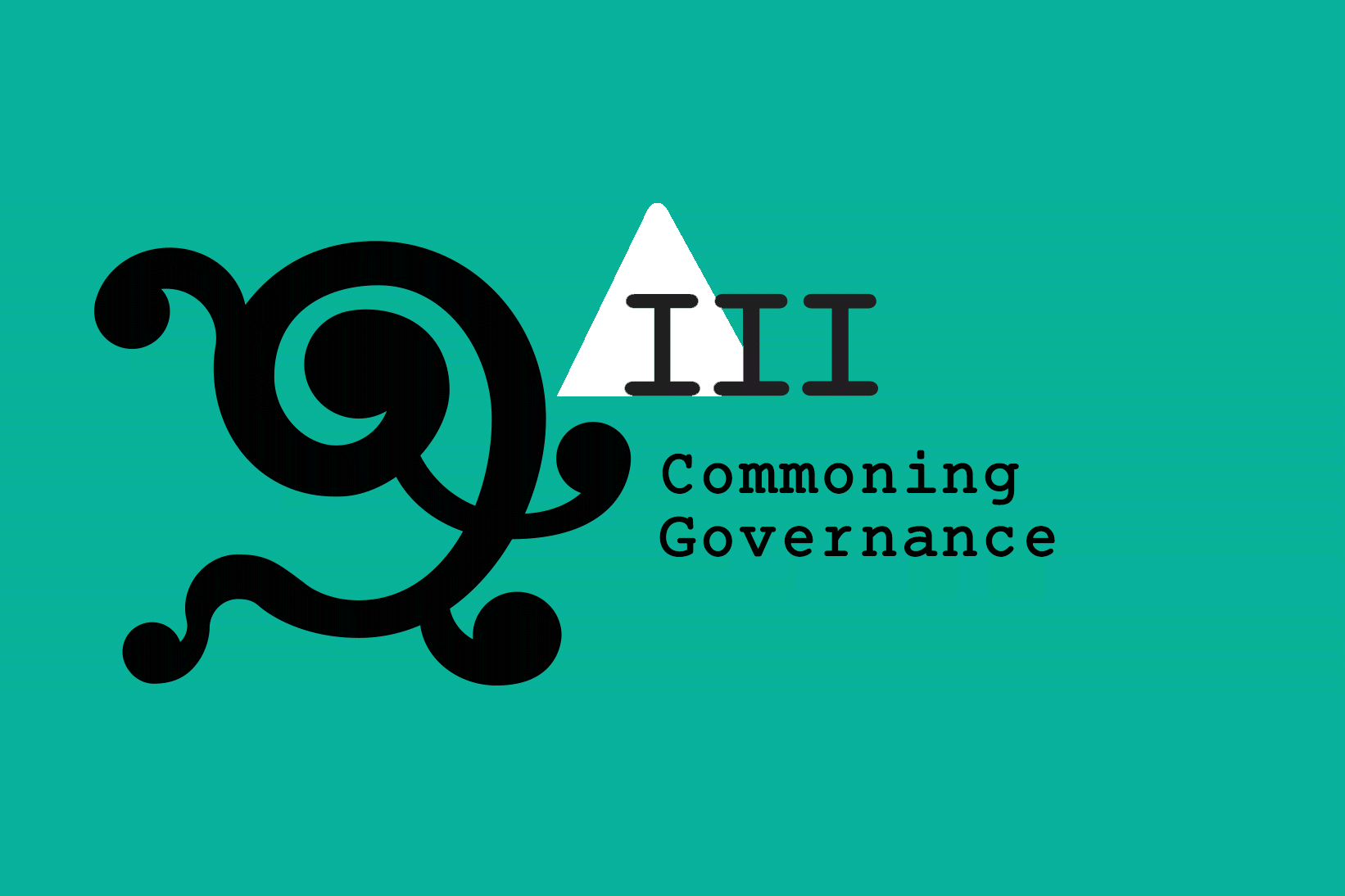28 February ~ Casco presents We Are the Time Machines (WTM) Forum III: Commoning Governance ~ with Michel Bauwens, Aetzel Griffioen and Manuela Zechner
“Barcelona en Comú is also an experiment in creating, accessing, and valorizing common infrastructures and resources. It has very few material resources at its disposal, but it manages to create new forms of access to existing resources, opening doors to council infrastructures with new legitimacy and collective claims, as well as valorizing grassroots and self-run social and political infrastructures. This gives the 'common' in its name a very concrete significance.”
- Manuela Zechner, “Barcelona en Comú: the city as horizon for radical democracy,” ROAR Magazine, 2015
An often-heard objection against the practice and discourse of the commons is that it all too eagerly focuses on already existing commons or fields for commoning; and that it is content with emphasizing the “cosy” politics of getting together, all the while leaving existing hierarchies, governmental structures, and power asymmetries intact. It is said that it attributes too much political importance to those residual or marginal political sites where commoning is still possible, but is also perfectly harmless to the powers that be. Is it true, then, that commoning is doomed to remain a relatively small-scale endeavor of “folk politics,” a fatal strategy in the face of globalized capital and its current governmental guise, neoliberalism?
We, at Casco, refuse to accept this gloomy catastrophic vision. Instead we look to and draw hope from actually existing commoning practices working with, within, and against existing forms of governmentality on different scales. In the process, these commoning practices radically alter governmental forms. For the third event in our We Are the Time Machines (WTM) Commoning Forum Series, together with Casco board member, philosopher, and head coordinator of Rotterdam Vakmanstad Aetzel Griffioen (also forum moderator) invite two speakers with ample lived, concrete experience with commons-based models for governance.
The first speaker is researcher and cultural worker Manuela Zechner who is closely involved in the “leftist people’s party” Barcelona en Comú (formerly Guanyem), which seized power in Barcelona in the city’s municipal elections in May 2015. She shares her personal experience with this people’s movement, focusing on Barcelona en Comú’s short but animated history, its radical democratic methodologies, and the challenges that institutional political successes pose for grassroots, commons-based organizations.
Following is a talk by Michel Bauwens, founder of the P2P Foundation, an international organization—itself structured as a commons—dedicated to studying, documenting, and promoting peer-to-peer processes, from software production to participatory forms of knowledge-sharing. Bauwens discusses the political potentiality of commons-oriented forms of peer-to-peer organization. He takes cues from his work on Ecuador’s FLOK (Free-Libre, Open Knowledge) Society plan, the first time an entire nation commissioned a plan to transform itself into a mature peer-to-peer economy.
After these two presentations, the audience is encouraged to actively take part in the discussion; we hope you will join us to think about how to common governance!
On the day of the forum, come earlier and make your own time to read through and see the project exhibition We Are the Time Machines: Time and Tools for Commoning open from 12:00 hrs.
The forum starts at 14:00 hrs and is free to all. Reservations are required via e-mail: steyn@cascoprojects.org.
Casco – Office for Art, Design and Theory
Lange Nieuwstraat 7,
3512 PA Utrecht,
The Netherlands

